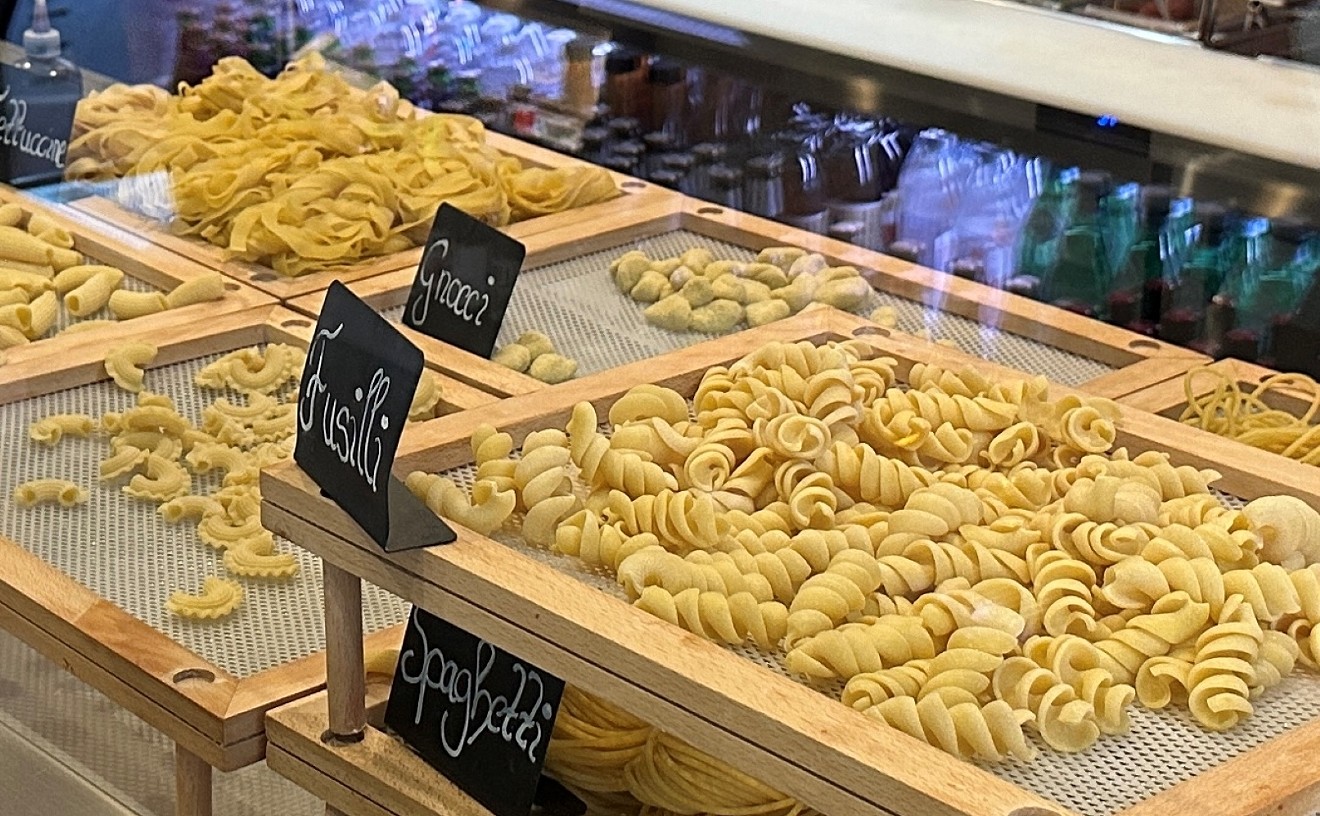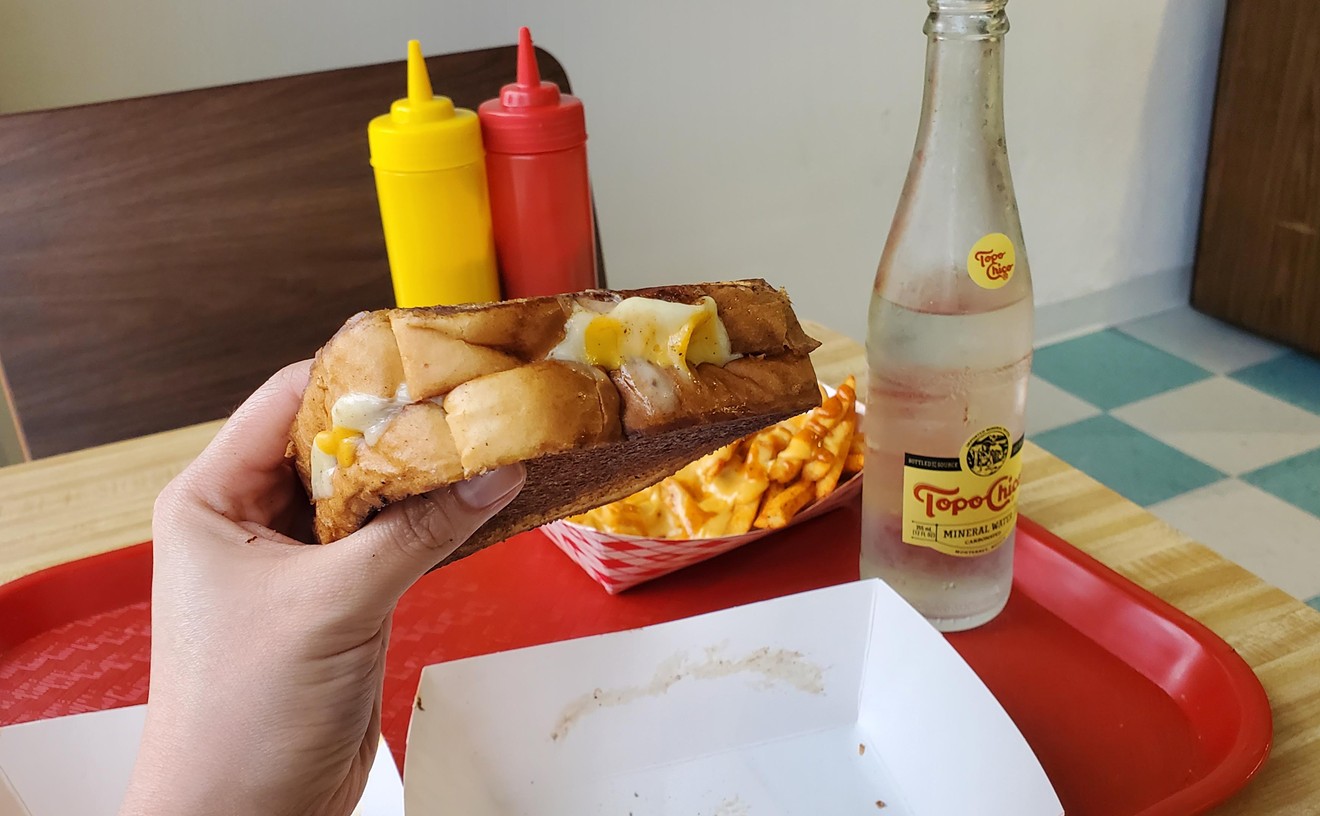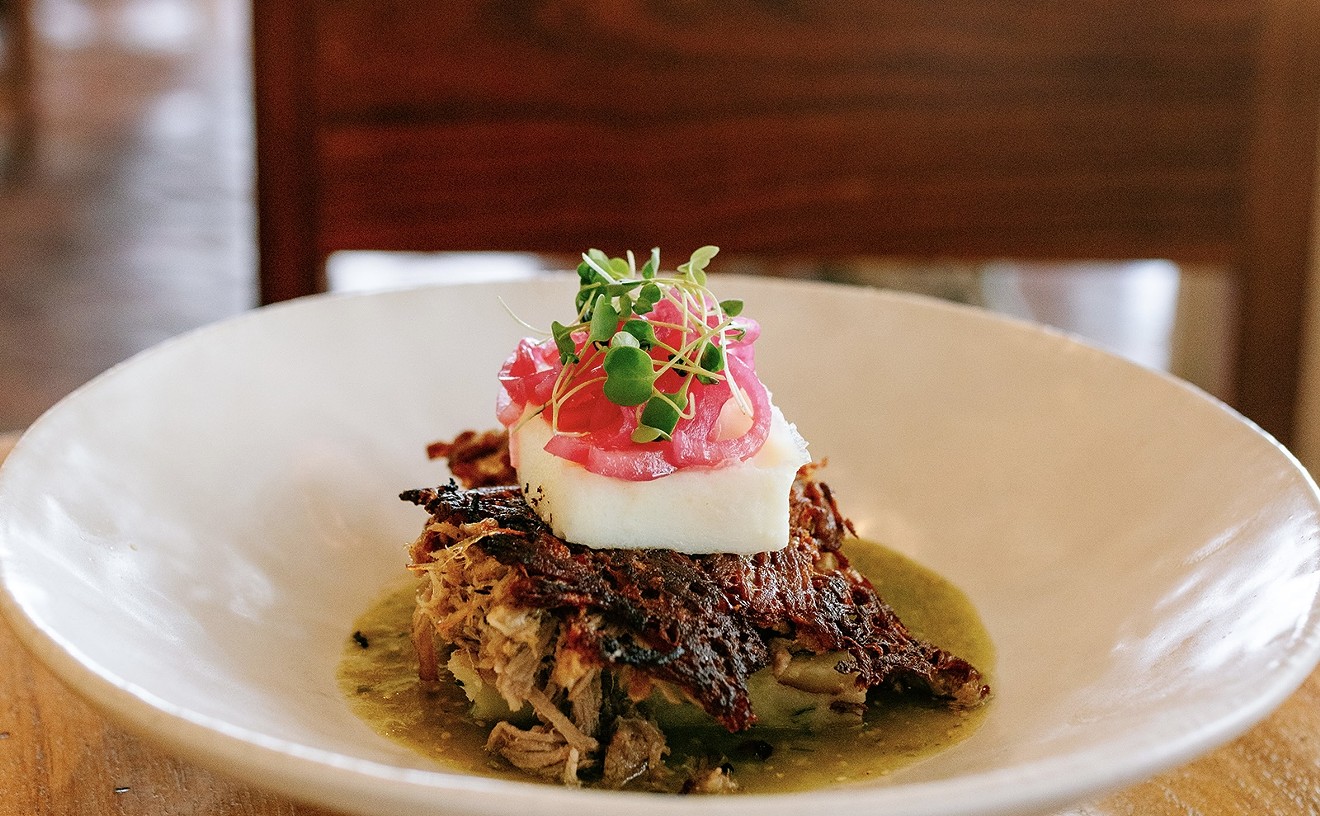I didn't take long to come to terms with the fact that my favorite bowl of ramen at Wabi House was not a soup at all. A broth of sorts was included, but it was served in a shallow bowl on the side. The noodles themselves were dry as a bone, at least until I broke open the egg that quivered on top of them. Covered in that primordial sauce, the noodles glistened, and mixed with strips of fresh chilies and onions and garnished with two giant flags of nori and a single medallion of pork belly, those noodles made for damn fine eating. They were even better when a tangle was dunked in that dipping bowl and adorned my shirt before it soothed my soul.
Called tsukemen ramen, the dish is warm, but not enough to bring on beads of sweat. It's a welcome alternative to steamy ramen bowls when the temperature flirts with three digits. If you're a masochist, or you're reading this after the summer relents, you might consider the tonkotsu ramen, which swims in a rich and milky pork bone broth that feels a bit like cream in your mouth. The noodles in this bowl are thin and straight like angel hair, compared with the chubby, springy noodles served in the dry bowls. Either way, the dishes are satisfying if you haven't gotten tired of ramen restaurants yet.
Owners Dien Nguyen and Kenzo Tran opened Wabi House earlier this summer, at the southern end of Lowest Greenville next to Dallas Beer Kitchen. Tran owns Piranha Killer Sushi, a six-location sushi restaurant where Nguyen served as chef before he took on the menu devoted to warm bowls of pork broth and small plates of Japanese food. Bowls of ramen are popping up all over Dallas, but Nguyen turns out a respectable soup with enough character to make it his own.
Many of his other plates are reason enough to pay Wabi House a visit. Pork croquettes arrive three at a time, filled with pork and mushrooms suspended in a thick béchamel sauce. A viscous squid ink sauce paints the plate in midnight. Halved Brussels sprouts are garnished with a heap of beets shredded into thin strands and fried to a crunch, while cashews echo the texture and add nutty sweetness.
For the most part, the sashimi holds up to expectations considering Nguyen's time spent helping to build a modest sushi empire. Sliced hamachi garnished with chili, scallions and vinaigrette tastes clean and bright, as does albacore with ponzu sauce and fresh herbs. The wabi tuna starts off just as nicely with fried shallots that lend texture and Thai chili that brings heat. But the creamy tang of goat cheese crumbled about lands with the delicacy of a metal trashcan dropped in an alley. Its bright white color is as jarring as its flavors, which don't marry the delicacy of the raw fish.
Attempts at conjuring an izakaya are also hit and miss. The fried chickpeas arrive generously portioned, slightly crunchy and dusted in seasoning with plenty of cumin. They're addictive, and a perfect dish for those looking to practice their chopsticks skills. At my best, I was able to corral three legumes between the bamboo skewers and shuttle them quickly to my mouth. At my worst, a few bounced off the table. Still, you could easily turn this activity into a delicious meditation: a cold beer in one hand and chopsticks in the other, repetitively snatching one chickpea at a time.
The same repetition doesn't work as well with the pig's ears, served in a bowl ready to feed at least four. Some of the thin strands were crunchy and enticing, others rubbery. All of them tasted redundant after only a quarter of the dish had disappeared. The spicy mayo on the side was much more attractive when served with chewy corn fritters. The condiment receives a boost from bonito — the smoked fish that imparts the pinnacle of umami.
The chicken karaage was dry and unappetizing one evening, but dishes that delivered fresh, clean flavors outnumbered the missteps, and for the most part, the menu at Wabi House was a pleasure to work through.
A meal here is even more enjoyable if you happen on Wabi House on a sunny day. A huge window opens to a patio facing Greenville Avenue and a powerful windscreen protects the bar and keeps the heat at bay. One afternoon I sat at the bar facing out, watching the sun bake the pavement as cars drove by. While the warm light poured in, illuminating the entire restaurant, I enjoyed a cool breeze and some shade.
In the evening, the same dining room is transformed into a dimly lit ramen cave that embodies the wabi-sabi design aesthetic that gives the restaurant its name. Booths with gray upholstery, sleek wood and bamboo embrace a wabi simplicity, while exposed, weathered brick and mangled masonry lean toward the sabi appreciation of patina and age. The space makes a great backdrop for Nguyen's cooking.
The ramen trend still seems to be gaining momentum in the Dallas area. Restaurants have opened in Addison, Deep Ellum and West Dallas in the past two years and some of them are excellent, but none of them have a tsukemen bowl quite as delicious as the one served here.
Nguyen and Tran have already proved themselves capable of scaling restaurants. I fear for my wardrobe should Wabi House go the way of Piranha Killer Sushi with multiple locations, making their tsukemen ramen available at other convenient places. The wabi-sabi aesthetic may celebrate flaws and wear, but that's only when those imperfections are purposeful. While my dry cleaner might be appreciative, I'd have a hard time arguing I intended to wear my ramen.










